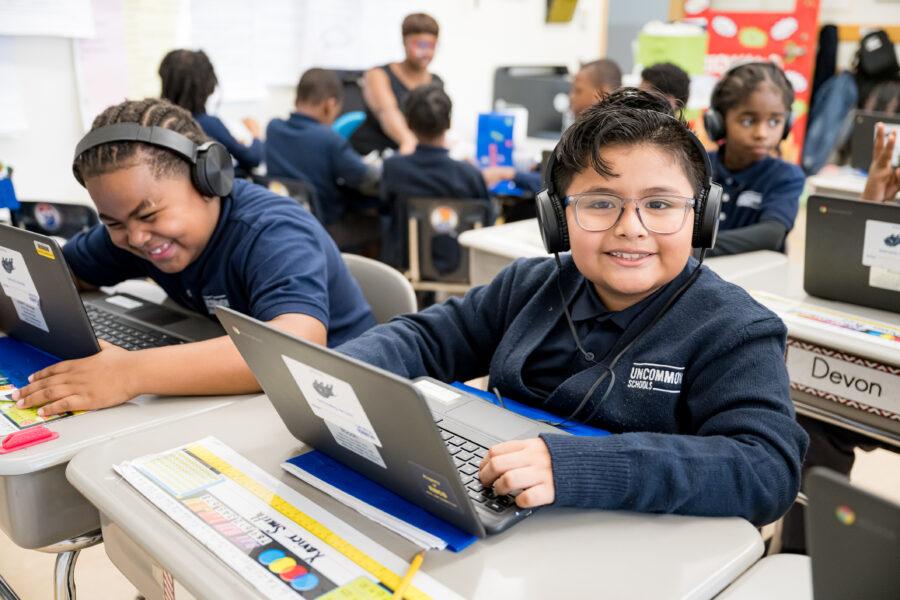NYC Launches Comprehensive Free Chromebook Program for Students
New York City Mayor Eric Adams has announced an extensive initiative to equip 350,000 public school students with complimentary Chromebooks for the 2023-2024 academic year. This large-scale effort is designed to close the technology gap that many students face, ensuring equitable access to digital learning tools both inside classrooms and at home. By providing these devices, the city aims to support diverse learning models, including in-person, remote, and hybrid education, while promoting educational fairness across all boroughs.
Highlights of the program include:
- Chromebook allocation prioritized by grade, focusing first on elementary and middle school students
- Establishment of school-based tech support centers to assist families with device setup and troubleshooting
- Collaborations with internet service providers to offer free or discounted broadband to eligible households
| Student Group | Devices Distributed | Support Services |
|---|---|---|
| Elementary (K-5) | 150,000 | Parent technology training sessions |
| Middle School (6-8) | 120,000 | Onsite technical assistance |
| High School (9-12) | 80,000 | Comprehensive resource guides |
Strategic Allocation Promotes Digital Inclusion Across NYC Boroughs
The distribution strategy is carefully designed to address disparities in technology access by focusing resources where they are most needed. Using demographic and socioeconomic data, the city targets schools in underserved neighborhoods to ensure that students facing the greatest barriers receive priority. This approach aims to reduce longstanding inequities by delivering essential devices directly to students in communities historically lacking sufficient digital infrastructure.
Key distribution priorities include:
- Emphasizing support for high-need schools in the Bronx and Brooklyn
- Partnering with local organizations to reach remote learners in Staten Island
- Providing multilingual technical support and resources citywide
- Allocating extra devices to schools with limited existing technology
| Borough | Chromebooks Allocated | Focus Student Groups |
|---|---|---|
| Bronx | 90,000 | Students from low-income families |
| Brooklyn | 110,000 | English language learners |
| Manhattan | 50,000 | Special education students |
| Queens | 60,000 | New immigrant communities |
| Staten Island | 40,000 | Remote and hybrid learners |
Impact on Remote Learning and Academic Performance
By distributing free Chromebooks to hundreds of thousands of students, New York City is taking a significant step toward mitigating the challenges posed by unequal access to technology, especially highlighted during the pandemic’s remote learning surge. This initiative is expected to empower students from marginalized communities by providing reliable access to digital classrooms, educational apps, and collaborative platforms, thereby enhancing their ability to engage with coursework regardless of their home internet situation or device availability.
Anticipated advantages include:
- Higher attendance and participation rates in virtual lessons and assignments
- Improved teacher-student interaction through timely feedback and dynamic lesson delivery
- Support for flexible learning models that combine in-person and online education
- Reduction of educational disparities linked to socioeconomic status
| Metric | Expected Improvement |
|---|---|
| Student Engagement | Increase by 25% in remote participation |
| Assignment Submission | 15% rise in on-time completion |
| Teacher Feedback Efficiency | Accelerated response times |
| Equity in Access | Broader reach across diverse communities |
Continuous Support and Training Essential for Successful Integration
Experts emphasize that distributing devices alone is insufficient to guarantee effective use in educational settings. Ongoing training for educators and accessible technical support for students and families are vital to fully leverage the benefits of Chromebooks. Teachers will have access to regular workshops focused on innovative instructional strategies and troubleshooting techniques, enabling them to seamlessly incorporate technology into their teaching practices.
Additionally, parents and guardians will receive guidance through community programs offering tutorials and interactive Q&A sessions, helping them support their children’s digital learning journeys. These comprehensive support systems foster a collaborative environment that strengthens the overall educational experience.
- Teacher Development: Monthly workshops on creative Chromebook applications in classrooms
- Technical Support: Real-time assistance via dedicated help desks
- Family Engagement: Quarterly seminars on safe and effective home internet use
| Support Category | Frequency | Intended Audience |
|---|---|---|
| Professional Development | Monthly | Educators |
| Technical Assistance | On-demand | Students and School Staff |
| Parent Outreach | Quarterly | Families |
Conclusion: NYC Advances Educational Equity Through Technology Access
As the new school year unfolds, Mayor Eric Adams’ pledge to distribute 350,000 Chromebooks to New York City public school students represents a transformative investment in digital equity. This initiative is poised to equip learners with the necessary tools to thrive in today’s technology-driven educational landscape, whether attending classes in person or remotely. The coming months will reveal how this substantial commitment influences student engagement, academic achievement, and the broader goal of closing the digital divide across the city’s diverse communities.













